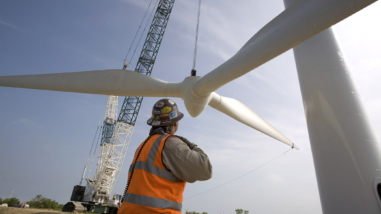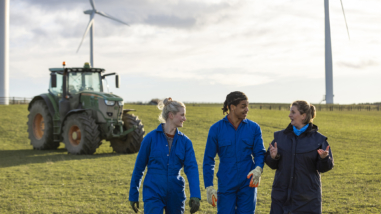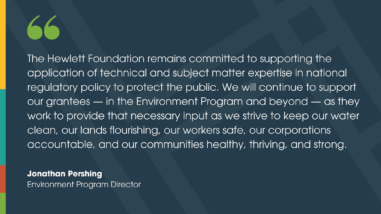Western Organization of Resource Councils Education Project
For Support Of The WORC Energy Education Program
-
Amount$500,000
-
Program
-
Date Awarded7/23/2013
-
Term24.0 Months
-
Type of SupportGeneral Support/Program
Strategies
Overview
The Powder River Basin in northeast Wyoming produces almost half of the coal burned in the United States, accounting for 13 percent of the country’s carbon emissions. This grant would support the organization’s efforts to reduce the volume of coal mined in the Powder River by one-third over the next twelve years, thus reducing emissions in the United States by 4 percent. The Western Organization of Resource Councils will partner with its member organizations and a broad array of regional and national conservation groups to challenge coal leases in the Powder River Basin, ensure the price for coal leased there reflects market and external costs, and organize a wide range of voices, including ranchers, in efforts to reduce coal production.
About the Grantee
Grantee Website
www.worc.org
Address
220 South 27th Street Suite B, Billings, MT, 59101-4106, United States
Grants to this Grantee
for general operating support
Formed in 1989, the WORC Education Project is a 501(c)(3) organization supporting the educational and charitable activities of the Western Organization of Resource Councils. Through community organizing, this regional network of organizations builds community leadership to protect clean air, water, and public health; reduce emissions of greenhouse gasses; ensure full reclamation and a fair return to taxpayers; and protect the rights of local residents, who often have little control over development on their land or next door. (Substrategy: Landscape-Scale Connectivity)
for general operating support
Formed in 1989, the WORC Education Project is a 501(c)(3) organization supporting the educational and charitable activities of the Western Organization of Resource Councils. This regional network of community-based organizations builds grassroots leadership through community organizing, to protect clean air, water, and public health; reduce emissions of greenhouse gasses; ensure full reclamation and a fair return to taxpayers; and protect the rights of local residents, who often have little control over development on their land or next door. (Substrategy: Advance Conservation Protections)



